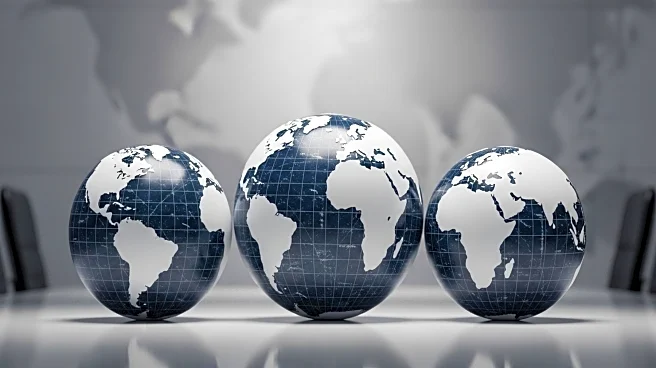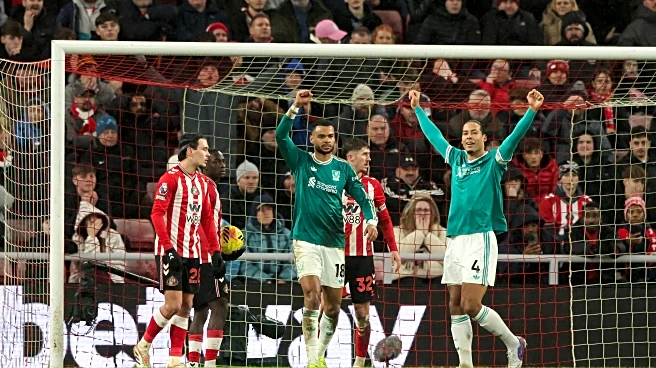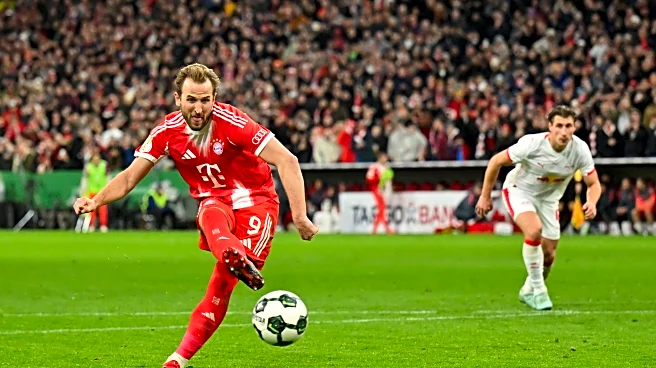What's Happening?
Chinese President Xi Jinping is hosting the Shanghai Cooperation Organization summit in Tianjin, welcoming leaders such as Russia's Vladimir Putin and India's Narendra Modi. The summit is focusing on the impact of U.S. President Donald Trump's trade policies, including significant tariffs on Indian goods due to India's continued purchase of Russian oil. The summit aims to strengthen ties among member countries, countering Western alliances like NATO. Analysts highlight the importance of the relationship between China and India, which has been historically strained by border disputes. The summit is seen as a potential turning point in global relations, with Modi's visit to China signaling a shift in India's diplomatic stance.
Why It's Important?
The summit underscores the shifting dynamics in global politics, particularly in response to President Trump's trade policies. The tariffs imposed by the U.S. have strained relations with India, pushing it closer to China and Russia. This realignment could have significant implications for U.S. foreign policy, as India was previously viewed as a strategic counterbalance to China's influence. The gathering of leaders at the summit highlights the growing importance of multilateral organizations like the Shanghai Cooperation Organization in shaping global economic and security policies. The U.S. may need to reassess its expectations and strategies regarding India and its role in countering China's rise.
What's Next?
The summit is expected to lead to further discussions on economic cooperation and security among member countries. Xi Jinping is hosting a military parade to commemorate the end of World War II, with leaders like Putin and North Korea's Kim Jong Un in attendance. The outcomes of the summit could influence future diplomatic and trade relations, particularly between China, India, and Russia. The U.S. may face challenges in maintaining its influence in the region, prompting potential shifts in its foreign policy approach.
Beyond the Headlines
The summit highlights the complex interplay of global alliances and the potential for new geopolitical alignments. The presence of leaders from countries with strained relations with the West suggests a growing solidarity among nations seeking alternatives to Western-dominated institutions. This could lead to long-term shifts in global power structures, with implications for international trade, security, and diplomacy.











